Inclusion and diversity
Squash is something which can, and should, be enjoyed by everyone - regardless of race, gender, age, sexual-orientation or disability. Yet there are people and communities who face barriers to participating in squash and we see lower levels of participation amongst some groups.
What is it?
Inclusion is ‘The practice or policy of providing equal access to opportunities and resources for people who might otherwise be excluded or marginalised, such as those who have physical or mental disabilities and members of other minority groups.'
Diversity is 'Having a range of people with various racial, ethnic, socioeconomic, and cultural backgrounds and various lifestyles, experience, and interests.'
Inclusion is often seen as the how, what steps or actions are needed to provide inclusive access for people who might not usually take part. Diversity is seen as the what - what is a diverse community, what makes a club or group diverse.
If your club isn't inclusive, it can't become more diverse.
Understanding different audiences
This section looks at different audiences that are often under-represented in squash and sport. Each section contains tips, resources and case studies to help your club better understand how to include different audiences and create a more diverse club.
Remember: even though we can look at different demographics separately and improve our understanding of the barriers groups of people might face, it's also important to keep in mind no one size fits all.
Women and girls
In squash, only 13% of weekly players are female. Women and girls do want to be more physically active and are looking for the right activity in the right environment.
Disability
In England, almost one in five people have a disability or long term, limiting condition and they are twice as likely as non-disabled adults to be physically inactive (42 per cent vs 21 per cent).
Ethnically Diverse communities
Ethnic groups and communities have differing participation levels, research also shows there are differences in the types of sport and activity that people of different ethnic groups do.
LGBTQ+
Compared to other groups, data on the physical activity levels of LGBTQ+ community - and the sport they play - is less well established. Have a read of Sport England's understanding LGBTQ+ here. Pride Sports also have a number of resources that are great to help get a better understanding of the LGBTQ+ community in sport.
Increasing diversity in your club
Things to be aware of when trying to increase diversity in your club:
- Traditional methods for recruiting participants may not inspire diverse participants.
- Upskilling coaches/volunteers/staff to increasing confidence around inclusion is key to improving diversity across the club.
- Creating a culture where members can feedback is key.
- Increasing the diversity of coaches/volunteers/staff has proven impact - "people like me".
- How people give their time is changing rapidly and sports opportunities needs to change too, review when your members want to get on court and adjust your sessions accordingly.
Unconscious bias
When we talk about inclusion and diversity we often hear about unconscious bias.
Unconscious bias refers to a bias that we are unaware of, and which happens outside of our control. Cultural norms, our own personal experiences and background and societal stereotypes lead to associations being formed, which generate attitudes, which in turn influence our behaviours.
As individuals we might make decisions about others based on our unconscious bias, this can lead to us behaving in a way that treat others differently, or excludes them.
There are various different types of unconscious bias, the most common being:
Gender bias
Gender bias is favouring or preferring one gender over another. This can impact recruitment, promotions and general treatment.
Ageism
Ageism is when you discriminate against or treat someone differently because of their age. This is common among younger coaches, who are frequently assumed to be unqualified for certain roles before their experience is even considered.
Horns effect
The horns effect is when you learn something you perceive to be negative about another person and then treat them differently as a result. For example, you learn something negative about a member and treat them as though they were less than they were previously.
Halo effect
The halo effect is when you learn something positive about someone and perceive them in a more positive view. For example, you have a new member join your club from when you believe to be a more prestige club, you as a result you assume they would excel more.
UK Coaching
Check out the resources from UK Coaching to help you understand more about unconscious bias and the actions you can take.
Buddle
Being welcoming and inclusive is a feature of many successful community sports clubs, groups and organisations. Offering a positive experience for all participants and volunteers regardless of ethnicity, religion, age, gender, sexual orientation, financial situation or ability benefits both your organisation and the people involved with it. Buddle has a number of resources to help you understand inclusivity and how you can make your club inclusive.
Inclusive Employers - The Diversity and Inclusion Calendar
To track and highlight awareness days, Inclusive Employers have a calendar that clubs can use to plan awareness events and campaigns.
Policies
Our Policies and Codes of Conduct set out the standards and expectations that are applicable to every person involved in the delivery of squash. Read the codes to ensure you are creating a safe, fair and inclusive sporting environment.
How can you help?
Help ensure squash can be enjoyed by everyone by:
- Sharing your story, experiences and ideas, and getting involved in our working group. Click here to submit your experiences which will help our understanding of diversity and inclusion within our sport.
- Link your club/venue up with local community groups such as faith centres, community groups, disability charities.
- Speak with and involve people from different backgrounds in your decision-making to ensure you have a balanced view.
- Get involved in campaigns such as Women's Squash Week or LGBT History Month on social media.
- Ensure images and videos on your web and social media channels show people from a diverse range of backgrounds.
- Ensure your club follow policies to help make everyone feel invited and involved.
We would love hear your thoughts on our club toolkit, simply fill out the form.









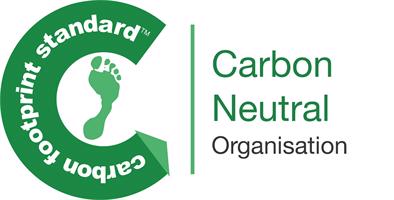
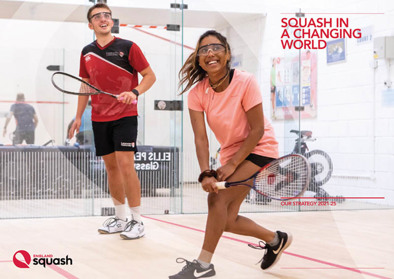
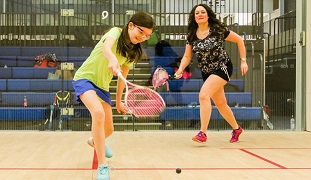
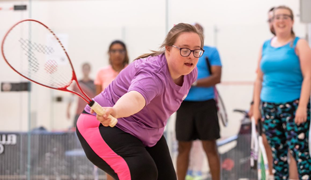
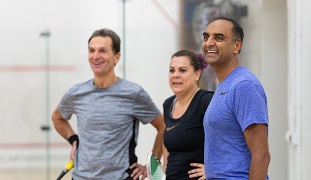
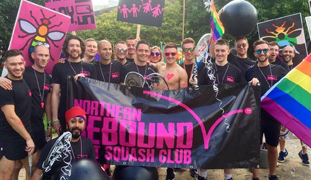
 Back
Back


-3.png)

 (2).png)
.png)
-1.png)
.png)
.png)
-1.png)


 (1).png)
.png)

